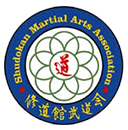Because you come to a new art with no knowledge, the early part of your martial arts career will be mostly filled with learning new techniques. Typically, you are taught a throw, joint lock, sword cut, or strike—you practice it a bit until you have memorized the pattern—your teacher helps you refine it a bit—and then you are taught another new technique. This is the same whether you study aikido, iaido, judo, jujutsu, karate-do, or kendo.
Because students get a lot of attention at this stage, and because of the excitement and interest of constantly learning new things, many students get addicted to learning new techniques. If they don't manage to move past this addiction, they will never become accomplished martial artists; instead, they will become collectors of skills—dilettantes with no deep understanding of their art. In fact, learning new techniques is the smallest part of the career of a true martial arts master.
MASTERING TECHNIQUES
In the traditional martial arts, we don't really believe in the idea that a person can truly “master” a technique or an art. Instead, we believe that becoming great at martial arts is a lifetime's commitment, and that we must constantly revisit the techniques we know to try to deepen our understanding of them.
What we mean when we say that the second aspect of physical training is “mastering techniques” is that we constantly practice what we know, always trying to be better. We analyze each part of a technique, figure out what could be done better, practice that part, then put the whole thing back together and try to make it more efficient, more effective, or more beautiful. If we keep at it long enough with an enthusiastic spirit, we can eventually become quite good at our chosen art.
Embrace Budo at a National Karate Association
Interested in learning more about budo and its training techniques?
SMAA is a national karate association, but also offers aikido, iaido, judo, and jujutsu! Whether you’re brand new to martial arts or a seasoned veteran, all dedicated martial artists have a place at SMAA. To get started, call (734) 720-0330 or submit a contact form here.












No comments:
Post a Comment